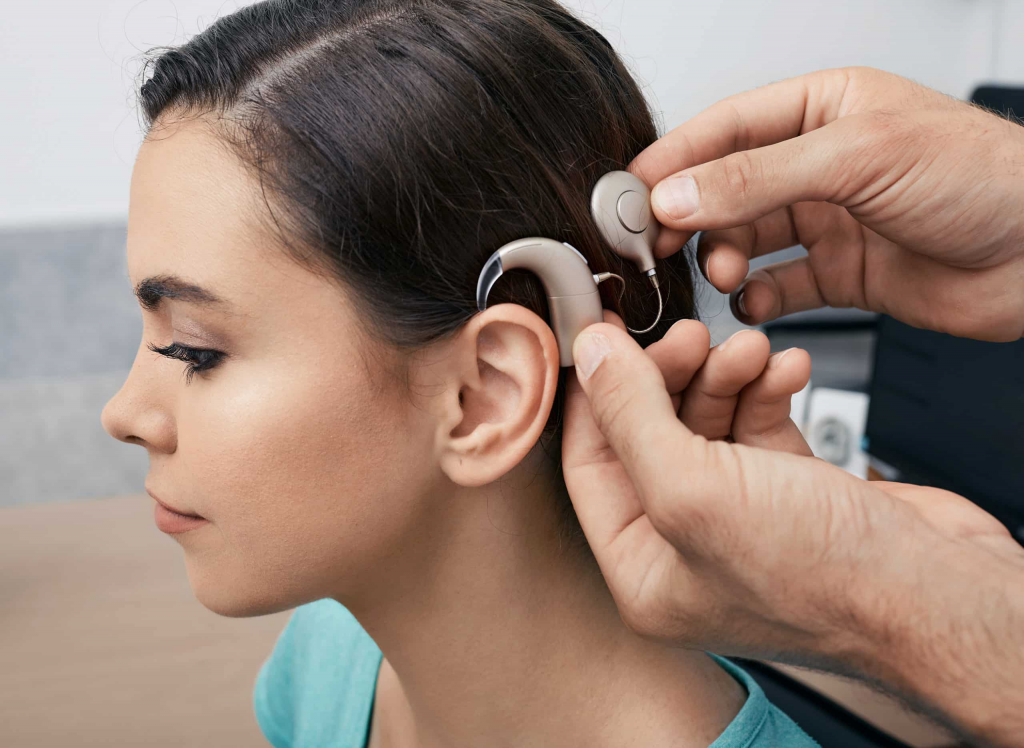
Hearing loss, whether congenital or developed later in life, affects many people. 1 in 5 adults in the UK experience hearing loss, are deaf or have tinnitus. More widely, 5% of the world’s population experience disabling hearing loss. Hearing, in conjunction with the other 4 senses, aids us in our understanding and interpretation of the world around us. So you would think that anything that helps to restore hearing is a net positive, right?
Not exactly.
There is a divide in the deaf community. Some see their deafness as a medical condition, whereas others see it as a cultural identity. The former group tend to see cochlear implants as a beneficial advancement and a great option as it can potentially improve their condition. Those who fall into the latter category tend to believe that cochlear implants are inherently negative, as the promotion of them implies that deafness is something that needs to be fixed. The deaf community have their own way of communicating that has been developed over many years, and the mass adoption of cochlear implants may cause them to lose the language and culture they have developed.
Cochlear implants are beneficial, with a 2020 study in adults showing that word recognition improved from 8.3% to 53.3% after implantation. However, it requires a lot of work for the person wearing the implant to reach this point. They will have to undergo speech and language therapy, and it can take many years to adjust to. The implant also does not restore hearing in the same way that non-deaf people can hear, as some may believe.
Below is a thread from an X/Twitter user, discussing how people without hearing loss may be insensitive to the emotions and agency of deaf people surrounding their choice of whether or not to use cochlear implants. The comments are taken from a video of a child who did not want to wear her implant after her parent asks her to put it on, and requests for her parent to sign with her instead.
In the thread, the user shares screenshots of people making comments such as, “If she didn’t want it she should pay her folks back for it”, and “Everyone cannot sign. She needs to be flexible and adaptable to make it in this world”, with many comments using ableist language.
With comments and language such as this, it’s understandable why there are deaf people who advocate for children to not be allowed to have cochlear implants until they can consent to the procedure.
The comments also display misconceptions about cochlear implants. There is a rampant attitude of “If you have an implant, why should I use sign language?” The consensus is that the child is choosing to not wear her implant out of insubordination. It is common for deaf people with hearing aids or implants to want “hearing breaks”. Some people with an implant still use lipreading and sign language as they may find it easier for many reasons.
This situation highlights the main issue that some deaf people have with cochlear implants; they can be seen as an excuse for the lack of accommodations that society has for deaf people.
Overall, cochlear implants are not a miracle cure. They have the potential to help deaf people, but it is an emotionally taxing process and it is not fair to expect all deaf people to want one (or two). If someone has a cochlear implant, but doesn’t want to use it all the time, we should be empathetic to that.
This is an excellent blog. It delves deep into the key social implications of cochlear implants with a good representation of both sides of the debate. It could be improved with the use of hyperlinks throughout as well as reflection throughout – why are you interested by this? What surprised you when researching this? A small section on how the cochlear implant works would also be beneficial.